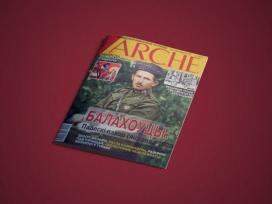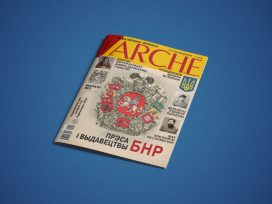The rescheduling of the elections in Belarus to 19 March, six months earlier than originally announced, has been widely seen as an attempt by the Lukashenko regime to throw the United Opposition off its stride. However, in the game of bluff and double bluff leading up to March 19, it is hard to say precisely what Lukashenko’s tactics are, or to forecast the results. What can be said for sure is that despite its apparent superiority in organization and funding, the regime is worried.
Belarus was taken by surprise by the announcement in the middle of December 2005 that the 2006 presidential election date was to be put forward to March. The timing of the announcement can easily be accounted for: with the university break and the traditional holiday (from December 25 to January 14), Belarusians were sure to be distracted. This left canvassers the hard task of collecting the 100 000 signatures necessary for candidates to be recognized officially within two weeks.
The move appears to have been both elegant and formally legitimate, though somewhat marred by notorious amendments to the Criminal Code. Still, there is no mistaking the facts: a simple trick has turned the election into a tragic farce. “Thank heavens, the troubles will end sooner”, some of President Lukashenko’s stoutest opponents were saying immediately after the announcement.
In fact, few of the United Opposition candidates received the rescheduling as a surprise, since rumours had been going round for quite a time. There was even a strong suspicion that the news was one of these rumours. Be that as it may, is the crucial issue really whether the opposition is prepared?
The rescheduling cannot be reduced to election dramaturgy, another part of Lukashenko’s election campaign, along with the opening of a new trade centre and a new National Library building, a CIS summit in May, grand celebrations on 9 May and 3 July, the Slavonic Bazaar, and much more. But if it is not election dramaturgy, what is it? Does the rescheduling mean that there is still competition in the election, or that the authorities are afraid of something? In fact, they are afraid of many things – that is hardly a secret. Despite what some independent analysts say about the regime being invulnerable, 2005 was clearly marked by preparations for the final battle. The more Lukashenko’s power increased, the more the opposition kept talking about the regime’s collapse. Instead they are now talking about its stability. Is that not hypocrisy? What has the opposition got to be afraid of?
Perhaps their candidate’s increasing popularity. This is the first time the opposition started preparing for an election in advance, paying special attention to the provinces. A mad rush is now on. But there is still time for the opposition candidate, Aliaksandr Milinkevich, to become another bogeyman in the eyes of the general public. Moreover, in spring, the electorate tends to be more tolerant of the present regime. Accurate opinion polls are almost impossible. So it is not the ratings that count.
Could the Lukashenko regime have been in serious doubt about the Kremlin’s support? Scarcely – it is stronger than ever. Like Lukashenko, Russian politicians have been deeply affected by the aftermath of “the orange syndrome”. On the other hand, the Belarusian leader is in a very favourable position in foreign affairs after the recent gas conflict between Moscow and Kiev. As for the G-8 summit in Moscow in July, some Belarusian and foreign analysts seem to exaggerate its importance. Even if there are remarks about Belarus, Putin is likely to reply that Belarus is a sovereign state and that the issue is not on the agenda. And then the discussion will move on to global terrorism.
As for Russia, it is fair to say that Lukashenko’s meeting with Putin before the announcement that the election was to be rescheduled rebutted those who view him as a latent Pazniak,1 as well as those who believe that Moscow might someday come to oppose Lukashenko. Lukashenko made that much clear by showing that he needs Russia’s support and Russia needs his.
Another of Luakshenko’s fears was an imported revolution, but that has already been dealt a serious blow. The danger must have been minimal to have been eliminated by such a simple trick. Lukashenko’s enemies are a bureaucratic mammoth that has brought forth a mouse – July was their aim and they were doing their best. The vast amounts of money the opposition is supposed to have received is nothing but a myth. Of course, something could have happened in time for July, but the present political situation suggests not. Belarus continues to buy Russian gas at the same price, saving hundreds of million dollars in the process, while the EU considers whether to give two million to the Belarusian independent media!
All the above is an attempt at objective analysis in the midst of subjective reality. For example, the common belief that the opposition gets enormous financial support from Europe is unlikely to be changed by any means. Rumours about a possible revolution are as real for the authorities as a revolution itself. The worst scenario is that the regime, lacking an actual political threat, develops an ignorant fear. But such fear can scarcely be called irrational. Its gravest consequence is the authorities’ total war against all foreign or internal enemies, enabling them to nip freethinking in the bud.
However, the fear has a reverse side. It helps us understand that the regime is frightened about something, that it is not confident, that it may be brought down despite its apparent stability. And eventually, like all authoritarian systems, it will have an end, even if it is supported by the people. A post-Lukashenko era will come someday, though nobody knows when. Still, every election brings it closer. The authorities are still able to eliminate all threats, but it is obvious that a single mistake is enough to change the whole situation in Belarus.
Zianon Pazniak, founder of the Belarusian Popular Front (BPF) and leader of the Christian Conservative Party of the BPF. Pazniak fled Belarus in 1996 on fear of arrest and now resides in the US. Unwilling to join forces with Milinkevich, he is standing as a presidential candidate in the 2006 elections.
Published 1 March 2006
Original in Belarusian
Translated by
Eurozine
First published by Arche 1-2/2006
Contributed by Arche © Vital Silitski/Arche Eurozine
PDF/PRINTNewsletter
Subscribe to know what’s worth thinking about.



